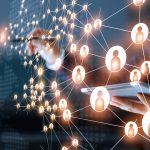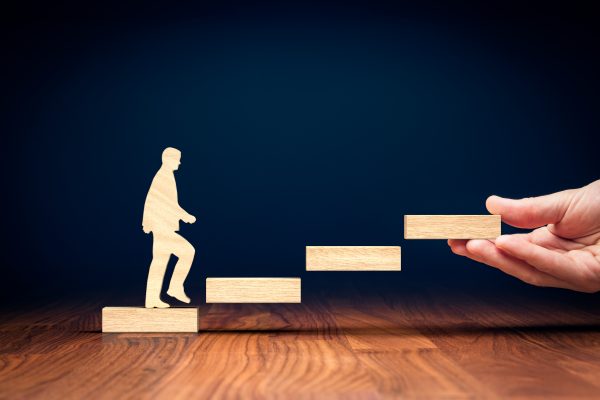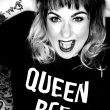Have you noticed a change in your eating and drinking habits? Are you binge watching Netflix? Can you relate to any of these statements?
I’m drinking wine every night.
I’m eating more carbs.
My biscuit tin is bulging at the seams and yet I’m always refilling it.
I check the fridge every 10 minutes looking for the answer to all my problems.
I’ve run out of programmes to watch on Netflix having watched all of them.
If any of that rings true, fear not! You are not alone! It’s referred to as ‘emotional eating’ (yes, even the Netflix bit!). It’s more common than you think, it’s not a sin and it’s a perfectly natural reaction to the ups and downs of life.
So what is emotional eating and what can we do about it?
Sistr spoke to Wellbeing Coach Nati Tarjanyi about the potential triggers and tips to break the negative cycles.
Let’s look at it as a habit whereby our emotions are driving our eating (or drinking) habits. We seek comfort in food when we’re feeling low. We do this to suppress negative feelings. In doing so it’s more common than not to create a negative cycle whereby we then feel guilt or shame after eating this way.
What drives someone to eat because of emotions?
In short, anything. Work, family, relationships, health issues, it doesn’t take much to make us turn to comfort food. We are harbouring trapped emotions with limited self belief and we want a quick fix. Emotional hunger then kicks in and overtakes our rational thought and best intentions.
Why do we turn to food?
Negative emotions can create emotional voids. Food can be one of the easiest ways to fill that void and in turn create a false feeling of being fulfilled. Lockdown has presented us with other factors that can trigger emotional eating:
- Lack of social support network.
- Inability to turn to activities that might normally relieve stress and anxiety.
- Negative self-belief and self-worth.
- Boredom – either too much time on our hands or not enough to think about eating properly – possibly both scenarios combined.
- Primal behaviour kicks in. We are in survival mode and nourishment of the body is a basic primal urge to survive.
- Changing dopamine levels in response to stress.
Dopamine is a neurotransmitter made by our body. Our nervous system uses it to send messages between nerve cells. It is our chemical messenger and plays a huge role in how we feel pleasure. The quickest and easiest method to derive pleasure, especially at this time, is through food when other avenues (socialising/dating/gyms etc) have been taken away. Our bodies will naturally crave the most energy efficient food to survive. Cooking a steak and eating an apple for pudding will produce dopamine but nowhere near as effectively as a bar of chocolate.
What is the difference between emotional hunger and true hunger?
We need to eat to survive so it may seem tricky to distinguish the difference between emotional hunger and true hunger. Perhaps you don’t want to distinguish the difference? Or you know the difference but are happy to brush over it for the moment? Either option is fine but here’s a few pointers if you’re looking to go deeper into your emotional eating.
- Physical hunger develops over time vs. emotional hunger comes on suddenly.
- Physical hunger sees you want a variety in what you eat vs. emotional hunger sees a craving for a particular thing.
- Physical hunger, once you’ve eaten, will produce a feeling of fullness which stops you eating more vs. emotional hunger comes with binge eating and a lack of fullness.
- Physical hunger will not carry with it any negative feelings towards eating vs. emotional eating is accompanied by feelings of guilt and/or shame.
What can we do to stop emotional eating?
Stop! Pause and become self aware. Slow down the process and take a step back. Question why you’re doing it?
Identify the reason behind what you are eating for?
It’s all too easy to get a quick fix with emotional eating but more often than not, eating due to negative emotions can lead to a deeper sense of unhappiness. The cycle needs to be broken and the emotional needs addressed.
One of the first steps to take is try and identify the differences between physical hunger and emotional hunger. Focus on how your hunger has come about and when it started and how you’re feeling both physically and mentally after eating.
Find another coping method.
Identify the need for food and label the emotion. The moment you label something it loses its power. You are aware. You are in charge. You are now an observer of your emotion. Look at your emotion with compassion. How would you deal with a child showing the same negative feelings? You’d wrap them in compassion, inject some positivity and show them a way out. Do the same for yourself.
Move your body and your mindset.
Can you find another method to deal with the stress? Writing a diary, going for a walk, doing an exercise class, popping on some tunes and having a kitchen dance are all possible ideas. It can take time to shift a mindset and , change a behavioural pattern, so play around with a few ideas and see what works for you.
Practise positive self-talk.
Ask yourself why am I behaving like this? What has triggered me to reach for the biscuit tin or the wine in the last hour/day? Emotional eating can walk hand in hand with guilt and shame so it’s vital to show yourself compassion and talk yourself round.
Life is unprecedented at the moment. We’re technically living in a warzone-like existence except we can’t fight the enemy. We can’t direct all our frustrations towards a physical foe, it simply doesn’t exist. So we turn our frustrations inwards. Don’t do this.
Don’t punish yourself. Don’t personalise it. Don’t see it as a failure. It’s a mere blip in the road and you can use it as an opportunity to learn and grow from it.
Ask for help.
It’s all too easy to bury our heads especially when isolated – both physically and mentally. 2020 has certainly shown us that we need to be more open and honest and authentic to our true selves. It is FINE to say you’re struggling, more than ok to admit you’re not happy and over and above courageous to ask for help.
Start with friends and family, put in a phone call and let them know how you’re feeling. You’d be surprised at how, just by reaching out and saying the words ‘I’m not doing so well’ might trigger the emotional support you need.
If that doesn’t work there are professional groups such as Overeaters Anonymous or your GP can refer you onto a counsellor. If you’d like to try closer to home then reach out to us at sistr and the amazing Nati can have a chat with you.
This may not be the right time to change your behaviour and that’s ok. But if you’re not happy with your behaviour, take positive steps to change it. Don’t change it because you think you ‘should’. Change it because you ‘want’ to. Make sure you’re ready to change and then get out there and smash it with some self compassion and kindness. And a whole lot of support from your fellow sistrs!














